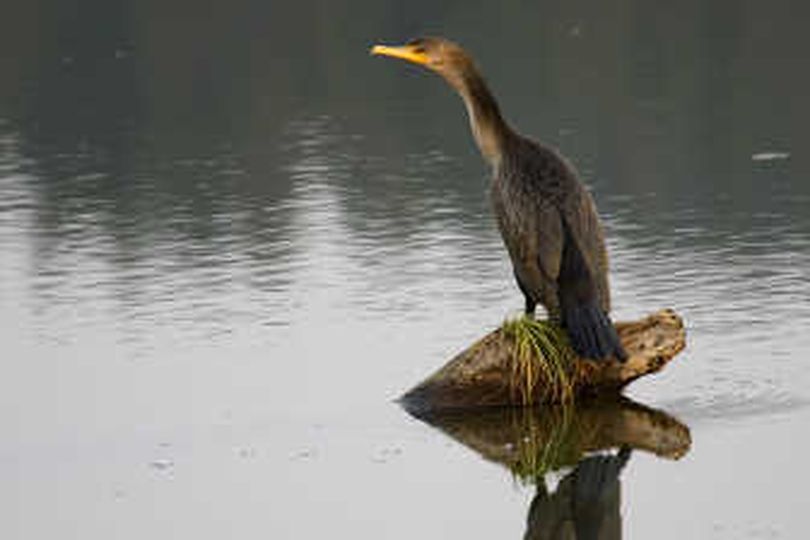Army Corps to cull fish-eating birds on Snake River

WILDLIFE -- The U.S. Army Corps of Engineers this spring plans to kill birds at some Snake and Columbia river dams to help protect juvenile salmon and steelhead, the Lewiston Tribune reports.
The agency unveiled a plan last week that will allow as many as 1,200 California gulls, 650 ring-billed gulls and 150 double-crested cormorants to be killed. The birds gather at the dams and feast on the migrating salmon and steelhead which bunch up there.
The action will occur at McNary Dam on the Columbia River and Ice Harbor, Lower Monumental, Little Goose and Lower Granite dams on the Snake River, according to the story moved by the Associated Press.
The corps said birds are typically the single largest cause of juvenile salmon and steelhead mortality. A 2009 study estimated that between 4 percent and 21 percent of smolts passing through the dams were eaten by birds.
The corps has long used non-lethal methods to scare away birds.
The plan has critics.
Kieran Suckling, executive director of the Center for Biological Diversity, said there are better ways to protect the fish, such as removing the dams.
“The birds are fundamentally not being killed to save the salmon,” he said. “They are being killed to keep the dams in place that are endangering the salmon.”
Bruce Henrickson of the Army Corps in Walla Walla said the agency has been encouraged by the National Marine Fisheries Service to consider killing problem birds. He said hazing with water cannons, fire crackers and wires strung above the river that disrupt flight paths will continue to be used.
Read on for more details.
The corps contracts with the federal Wildlife Services Agency to implement the non-lethal hazing practices. The same agency will use shotguns to kill what Henrickson called problem birds or small groups of birds.
“They observe specific individual or small group behaviors, and if those birds don’t retreat from non-lethal hazing, then lethal take is considered as an option,” he said.
None of the bird species targeted for removal at the dams is listed under the Endangered Species Act but they are protected by the Migratory Bird Treaty Act. An environmental assessment found that 2,500 California gulls, 3,400 ring-billed gulls and 705 cormorants could be killed in Washington without affecting their distribution, abundance or population trends.
